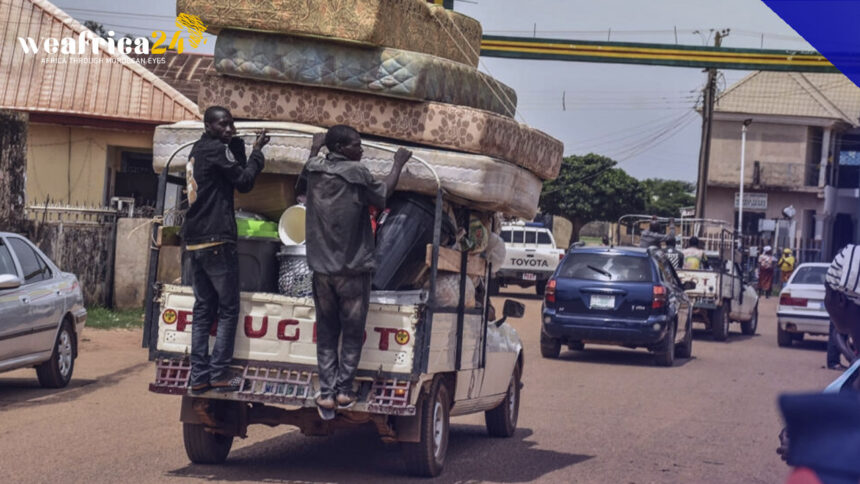In central Nigeria, the Plateau State is in mourning following the weekend massacres dubbed “Black Christmas” in the headlines. Armed groups attacked around twenty villages from Saturday night, December 23, to Monday, December 25, resulting in over 160 deaths and at least three hundred injuries. Residents are still missing in three constituencies south of Jos, the capital of Plateau State, namely Mangu, Bokkos, and Barkin Laddi.
In Plateau State, scenes of collective burials unfold in grieving communities, with bodies placed in large graves side by side. Elsewhere, survivors stack mattresses and suitcases on car roofs to flee the area.
Governor Caleb Mutfwang conducts multiple interviews, denouncing a series of “well-coordinated attacks with heavy weapons.” A member of the opposition PDP party, Caleb Mutfwang urges Nigeria’s security agencies to “do their job” to identify the masterminds and those funding and arming the assailants.
Residents indicated that the attackers were Hausa and Fulani militia. However, Governor Caleb Mutfwang believes it is no longer just a conflict between herders and farmers or between Muslims and Christians but rather a large-scale criminality issue. He warned, “Until we cut off the sponsorship of this violence, we may never see an end to it.”
At the federal level, Nigerian President Bola Ahmed Tinubu condemned the attacks on Tuesday, December 26, stating that he had ordered security forces to intervene immediately, patrol the area, and apprehend those responsible for these “atrocities.”
This marks a new episode in the cycle of violence in Nigeria’s Middle Belt, a cycle that President Bola Tinubu called to break in July, echoing his predecessor, Muhammadu Buhari, who had made a similar plea earlier without success.







